Fruit
The few remaining Spanish canners have started to process the season's bumper mandarin orange crop. At 150,000 metric tonnes, it was nearly double last year's production. A high proportion of 2005's crop went into the fresh market, causing fruit prices to escalate, but this year's plentiful supply should guarantee deliveries of finished product. Prices will be lower, according to UK importers, but that contradicts the news coming out of the Spanish region of Murcia. "Last year the industry lost money as growers held us to ransom and we delivered throughout Europe at pre-season contract prices. We have to get a realistic return, which means prices will be the same as last year," a source said. Mandarin sales remain steady but there has been a year-on-year reduction in some other canned fruits. An anomaly that sees higher tariffs on segments packed in syrup rather than juice will make Chinese imports competitive with Spain. Other than the UK, the syrup pack dominates the European markets, undercutting Chinese product, which attracts a high tariff.
Fish
Tuna fishing in the Indian Ocean continues to produce a higher than expected skipjack catch, pushing prices down slightly. The market in Bangkok, however, has risen $50 to just under $900 a tonne. A differential of $200 a tonne will enable Thai producers to use Indian Ocean fish as its lower price will compensate for its extra freight cost of $180 a tonne. With prices stable, retailers will be able to continue their BOGOF four-pack promotions well into Q1 next year. This mechanic continues to stimulate good consumer demand for the 185g branded pack.
Meat
Early rains in Central Brazil have enabled farmers to release 'confinement' cattle early, resulting in lower prices as markets receive more livestock. Prices started to ease last month from R$65.00 per arroba to R$60 (£1.30/kg). With increased availability due to some unexpectedly wet weather, prices dropped further this week to R$56.00 (£1.21/kg). Corned beef prices will not be directly affected, because of the conversion rate of the Brazilian Real against the US dollar, but importers expect some easing of fob quotes. Russia has stopped buying forequarter meat, the main ingredient for canning, but will re-enter the market in the spring when new contracts are negotiated. Hot packs, such as stewed steak are selling well and a return to more normal, seasonal weather is expected to trigger promotional activity.
The few remaining Spanish canners have started to process the season's bumper mandarin orange crop. At 150,000 metric tonnes, it was nearly double last year's production. A high proportion of 2005's crop went into the fresh market, causing fruit prices to escalate, but this year's plentiful supply should guarantee deliveries of finished product. Prices will be lower, according to UK importers, but that contradicts the news coming out of the Spanish region of Murcia. "Last year the industry lost money as growers held us to ransom and we delivered throughout Europe at pre-season contract prices. We have to get a realistic return, which means prices will be the same as last year," a source said. Mandarin sales remain steady but there has been a year-on-year reduction in some other canned fruits. An anomaly that sees higher tariffs on segments packed in syrup rather than juice will make Chinese imports competitive with Spain. Other than the UK, the syrup pack dominates the European markets, undercutting Chinese product, which attracts a high tariff.
Fish
Tuna fishing in the Indian Ocean continues to produce a higher than expected skipjack catch, pushing prices down slightly. The market in Bangkok, however, has risen $50 to just under $900 a tonne. A differential of $200 a tonne will enable Thai producers to use Indian Ocean fish as its lower price will compensate for its extra freight cost of $180 a tonne. With prices stable, retailers will be able to continue their BOGOF four-pack promotions well into Q1 next year. This mechanic continues to stimulate good consumer demand for the 185g branded pack.
Meat
Early rains in Central Brazil have enabled farmers to release 'confinement' cattle early, resulting in lower prices as markets receive more livestock. Prices started to ease last month from R$65.00 per arroba to R$60 (£1.30/kg). With increased availability due to some unexpectedly wet weather, prices dropped further this week to R$56.00 (£1.21/kg). Corned beef prices will not be directly affected, because of the conversion rate of the Brazilian Real against the US dollar, but importers expect some easing of fob quotes. Russia has stopped buying forequarter meat, the main ingredient for canning, but will re-enter the market in the spring when new contracts are negotiated. Hot packs, such as stewed steak are selling well and a return to more normal, seasonal weather is expected to trigger promotional activity.



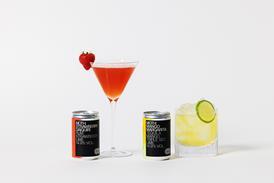



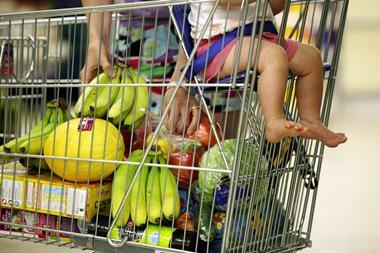

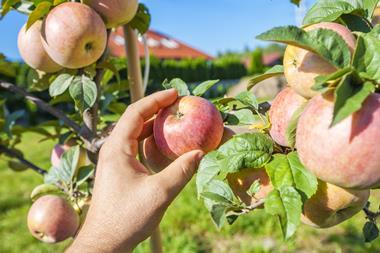

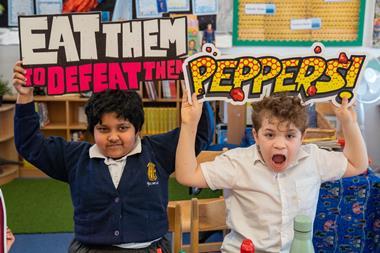

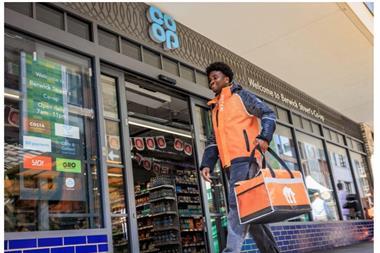




No comments yet